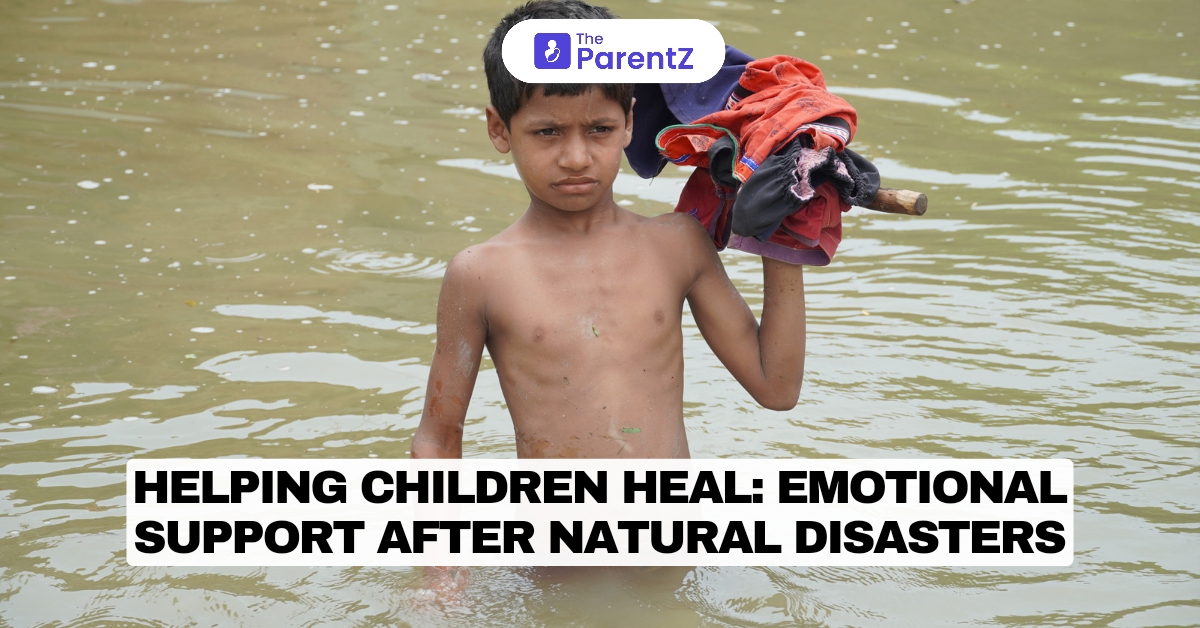The recent onslaught of natural disasters in India, especially the devastating floods and landslides, has left an indelible mark on countless lives. While the physical damage is evident, the psychological toll, particularly on children, is often overlooked. Children process the world differently, and the enormity of such catastrophes can be overwhelming. Let's understand how these events impact their mental health and how we can support them.
Impact of Natural Disasters on Children
Imagine a world turned upside down. A world where your home, school, playmates, and sense of safety vanish in a blink. This is the reality for many children facing the aftermath of natural disasters. These experiences can be deeply traumatic, leaving lasting scars on their emotional well-being.
Kids are particularly vulnerable to the psychological impacts of natural disasters. They may experience a range of emotional responses, including fear, anxiety, sadness, and confusion. The recent floods in states like Kerala and Himachal Pradesh, which have resulted in significant loss of life and property, highlight the urgent need for mental health support for affected children. Reports indicate that children may exhibit symptoms such as:
- Post-Traumatic Stress Disorder (PTSD): Children may relive the traumatic event through flashbacks or nightmares.
- Anxiety and Depression: Many children may feel persistent sadness or worry about their safety and the safety of their loved ones.
- Behavioral Changes: Increased aggression, withdrawal from social interactions, or regressive behaviors (such as bedwetting) can be signs of distress.
- Physical Symptoms: Complaints of headaches, stomachaches, or other physical ailments can also manifest due to emotional turmoil.
These reactions are often exacerbated by disrupting their daily routines and losing familiar environments, leaving children feeling insecure and anxious.
Identifying Symptoms of Distress
Identifying the signs of emotional distress in children is the first step in providing adequate support. Parents should be vigilant for:
- Shifts in mood or behavior, such as irritability or withdrawal from friends and family.
- Difficulty focusing or a decline in academic performance.
- Inflated fears or anxieties, particularly related to safety.
- Physical signs like headaches or stomach aches without a medical cause.
- Nightmares or changes in sleep patterns.
If parents observe these signs, it may imply that their child is struggling to cope with the aftermath of a disaster.
Strategies for Supporting Children's Mental Health
Supporting children after a natural disaster requires a compassionate and proactive approach. Here are some effective strategies:
- Open Communication: Encourage children to communicate their feelings. Use age-appropriate language to discuss the event and validate their emotions. Let them know it's okay to feel scared or sad.
- Establish Routines: Maintaining a sense of normalcy can help children feel secure. Try to keep regular schedules for meals, homework, and bedtime.
- Provide Reassurance: Remind children that they are safe and that adults are taking steps to ensure their well-being. This reassurance can help alleviate fears.
- Engage in Play: Drawing, storytelling, or playing can help children process their feelings. Creative outlets allow them to express emotions for which they may not have the words.
- Limit Exposure to Media: While staying informed is important, excessive exposure to news coverage of disasters can heighten anxiety. Monitor and limit children's media consumption.
- Encourage Social Connections: Facilitate interactions with friends and family. Social support is crucial for emotional recovery.
- Seek Professional Help: If symptoms continue or worsen, consider consulting a mental health expert specializing in child psychology. Therapy can provide kids with coping strategies and a safe space to voice their feelings.
Things to Avoid
While supporting children, it's equally important to recognize what not to do:
- Don't Dismiss Their Feelings: Avoid telling children to "just get over it." Their feelings are real and should be acknowledged.
- Avoid Overprotectiveness: While it's natural to want to shield children from further distress, being overprotective can prevent them from developing resilience.
- Don't Force Conversations: Allow children to share their feelings at their own pace. Pushing them to talk before they are ready can lead to further anxiety.
- Avoid Negative Coping Mechanisms: Be mindful of your own coping strategies. Children often model adult behavior, so it's crucial to demonstrate healthy ways to manage stress.
Conclusion
The recent natural disasters in India serve as a stark reminder of the fragility of life and the resilience required to recover. For children, the emotional impact of such events can be profound and long-lasting. We can help children express their feelings and foster resilience by understanding the signs of distress and employing supportive strategies. It's important to approach these discussions with empathy and patience, recognizing that children may not have the experience or tools to process their emotions independently. Children can emerge from these challenges stronger and more resilient with the right support.








Be the first one to comment on this story.